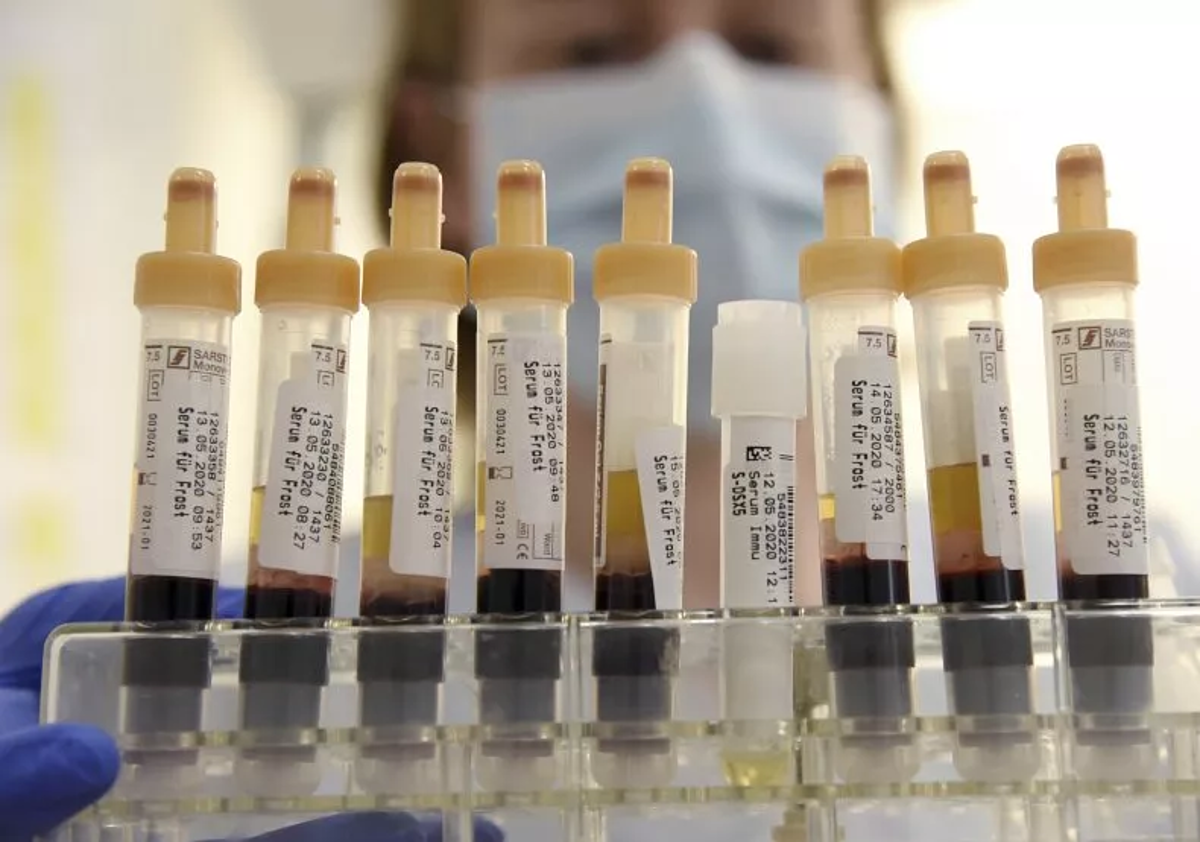The French Blood Agency (EFS) announced the discovery on 21/6. The blood type, named "Gwada negative," is the 48th blood group recognized globally.
"She is the only person in the world compatible for a blood transfusion with herself," said Thierry Peyrard, a medical biologist at EFS.
In 2011, during routine pre-surgical tests, doctors discovered an unusual antibody in the woman's blood. Experts suspected the existence of a previously unknown blood type. However, due to limited resources at the time, they couldn't fully characterize it.
By 2019, with advancements in high-throughput DNA sequencing technology, the EFS research team decoded the woman's genes and confirmed a new blood type. The woman, then 54 and living in Paris, is believed to have inherited the rare blood type from both parents, each carrying a rare mutated gene.
The name "Gwada negative" was chosen to honor her Caribbean (Guadeloupean) heritage and "sounds pleasant in all languages," according to Peyrard.
 |
Serum tubes containing patient blood samples are processed at the St. Georg Clinic in Leipzig. Photo: DPA |
Serum tubes containing patient blood samples are processed at the St. Georg Clinic in Leipzig. Photo: DPA
The EFS confirmed the new blood type's official recognition by the International Society of Blood Transfusion (ISBT) at a conference in Milan. Until then, the ISBT recognized only 47 blood group systems.
According to the EFS, blood type identification is crucial for safe blood transfusions and organ transplants. For patients with rare blood types, this discovery has scientific significance and improves healthcare options.
The EFS is responsible for discovering 10 of the 17 blood group systems recognized in the past decade. Karl Landsteiner discovered the world's first blood groups in the early 20th century, winning the 1930 Nobel Prize in Medicine for his work.
According to the US Centers for Disease Control and Prevention (CDC), blood type classification is essential for determining donor-recipient compatibility. Discoveries like "Gwada negative" expand medical understanding of human immune system diversity.
"Identifying new blood groups enhances treatment for patients with rare blood types," the EFS emphasized in a press release.
The research team is searching for similar cases globally, though the probability of finding another person with "Gwada negative" blood is extremely low.
Thuc Linh (AFP, News Week)












